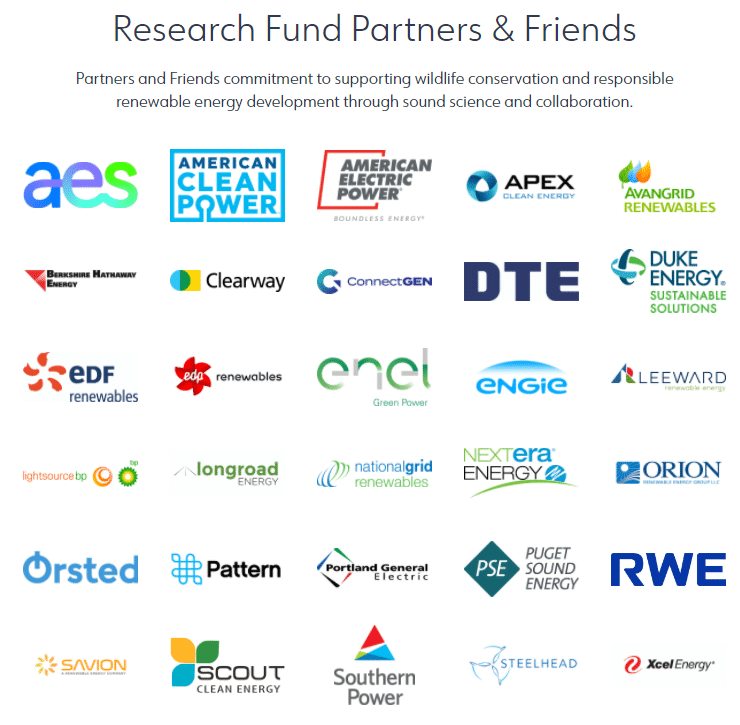
The Fund’s role is more valuable than ever as renewable energy rapidly expands, with solar poised to become the dominant clean energy technology in coming years. Achieving the goal of a net-zero electrical generation economy by 2050 will require a rapid increase in installed renewable capacity nationwide. The Fund helps the industry achieve the goal of renewable energy expansion with science-based solutions to maximize sustainability and address potential wildlife and related impacts.
By addressing top renewable-wildlife research priorities, the Fund ensures that wind and solar energy development, wildlife, and related natural resource protection go hand-in-hand.
In late 2021, the Wind Wildlife Research Fund Advisory Council voted to expand its research scope to include solar power and wildlife research topics and projects. Reflecting new, broadening research priorities, the Advisory Council renamed the research funding body to Renewable Energy Wildlife Research Fund.
“Solar has an opportunity to get ahead of the impacts curve much quicker than wind did,” said Kristen Goland, Research Fund Chair and Avangrid Renewables Regional Permit Manager. “By incorporating solar into the Fund’s research priorities, the industry will be better prepared to assess potential wildlife-related impacts while increasing solar energy development.”
The Fund provides an immense value as, Ray Kelly, Research Fund Vice-Chair and Clearway Energy Group Environmental Senior Director highlighted, “The Fund enables our industry to talk about on-the-ground complications we are witnessing, find the root causes, and capitalize on the value of research to implement changes that reduce wildlife impacts.”
“Solar is going to see significant additions in the coming years, so it is extremely important that we plan and build in a well-informed way. Science helps us get projects built quicker by facilitating permitting and enables us to better address wildlife and other issues,” said Devon Muto Research Fund Scribe and EDF Renewables Director of Development.
Research Priorities:
Building on wind-wildlife research successes, the Fund has grown to include solar. The Fund supports independent, peer-reviewed research to:
- Implement new, cutting-edge projects and high-impact results
- Apply science-based solutions to address top-priority solar and wind-wildlife challenges
- Leverage investment and reduce costs for expanding responsibly sited and operated solar and wind energy
By sharing priority research, the Fund provides insights to inform the energy sector, government agencies, and conservation and science organizations with science-based best practices for siting and operating renewable energy projects while conserving wildlife. Empowering clean energy growth and conservation alike, the applied science lessens renewable energy and wildlife impacts as renewables accelerate to meet clean energy demand.
All project proposals, scopes of work, and results undergo independent expert review and are published as peer-reviewed journal articles or as REWI technical reports.
For more details and project descriptions, please visit: https://rewi.org/renewable-energy-wildlife-research-fund/projects/
